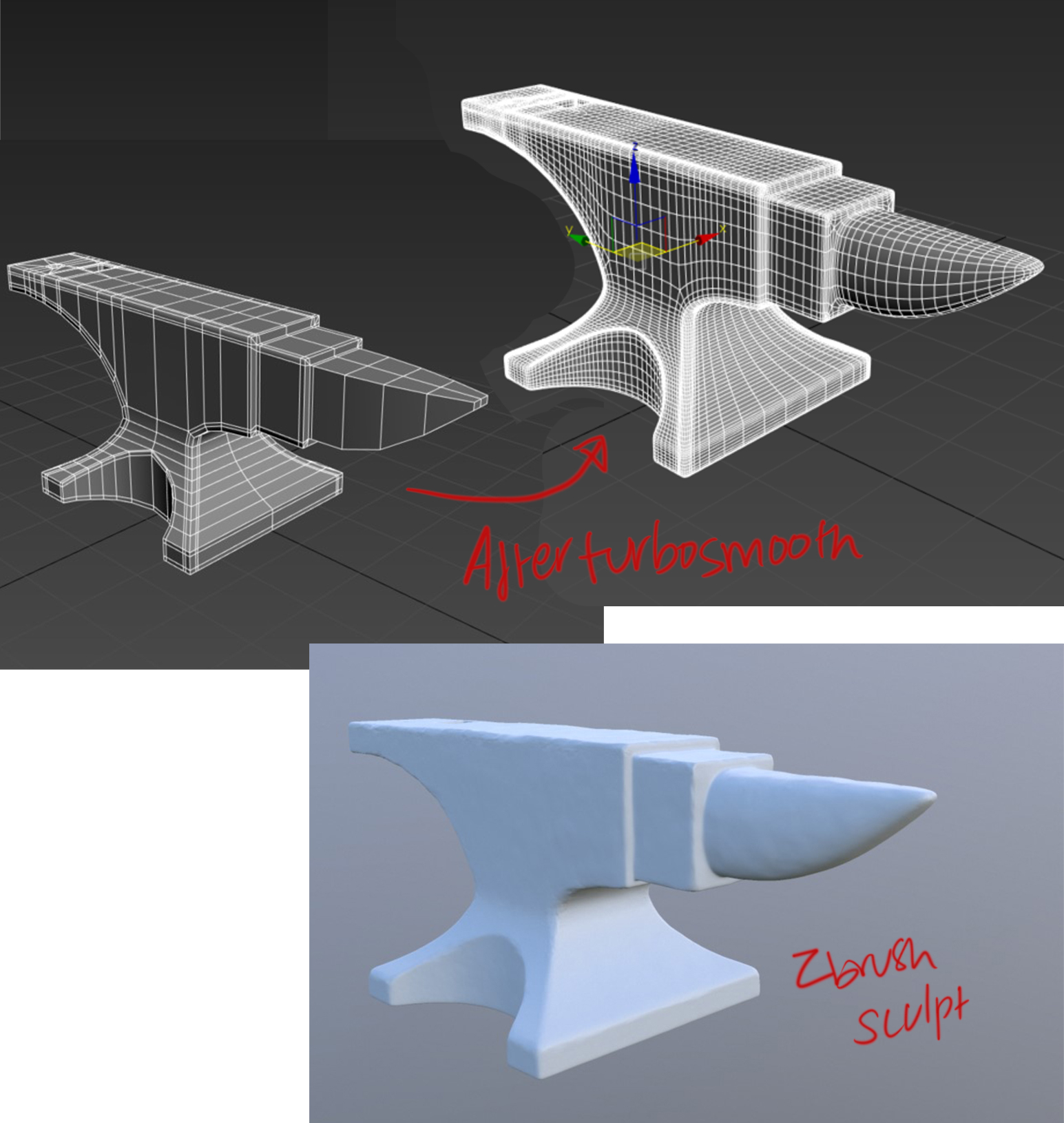Help with basic normal map baking
Hello everyone,
The workflow that I used in the past was
low poly---->smoothing groups---->chamfer modifier (based on smoothing groups)---->Fixing issues---->Turbosmooth
This provided me with a high poly and a low poly, which gave me alright bake results.
When it comes to baking normal maps I feel like my normal maps always came out looking sub par. Which is why I wanted to learn different workflows. So this time around I wanted to improve my modelling skills by manually placing support loops and focusing on achieving a low poly with acceptable polyflow. And then take it to zbrush to do some additional detailing to the highpoly. And then bake inside Marmoset.
The set up for this asset was as follow

And this was the bake results


As you can see the anvil's horn doesn't match the high poly,
At first I thought it was because of how the lowpoly's smoothing group was set up. I tried smoothing the lowpoly differently and did multiple test bakes, but I got similar results.
I came to a conclusion that i can fix this problem by adding geometry in the lowpoly to better match the high poly,
But in the tutorial that I am following achieves a perfect bake using the same polyflow. Which makes me question my limited knowledge about normal baking,
i have added a link to the tutorial with a timestamp that shows the wireframe
 https://youtu.be/0r-cGjVKvGw?t=690
https://youtu.be/0r-cGjVKvGw?t=690
So how can I achieve good results using this set up? I know that its possible but I feel like I am missing some knowledge about normal baking.
Please help me out here, this question keeps me up at night. XD
Thank you, have a great day ![]()

Replies
What i did was applied the subD modifier at the lowest iteration. And then manually deleted all the extra geometry it added. I was left with similar lowpoly but with slightly different shading. Which matched the highpoly better. Thanks again